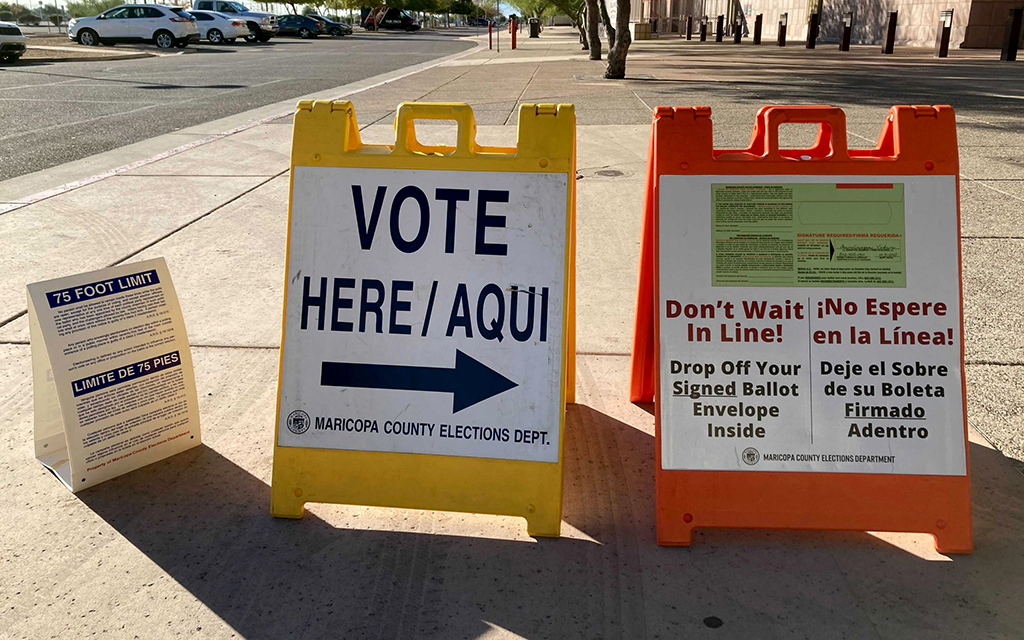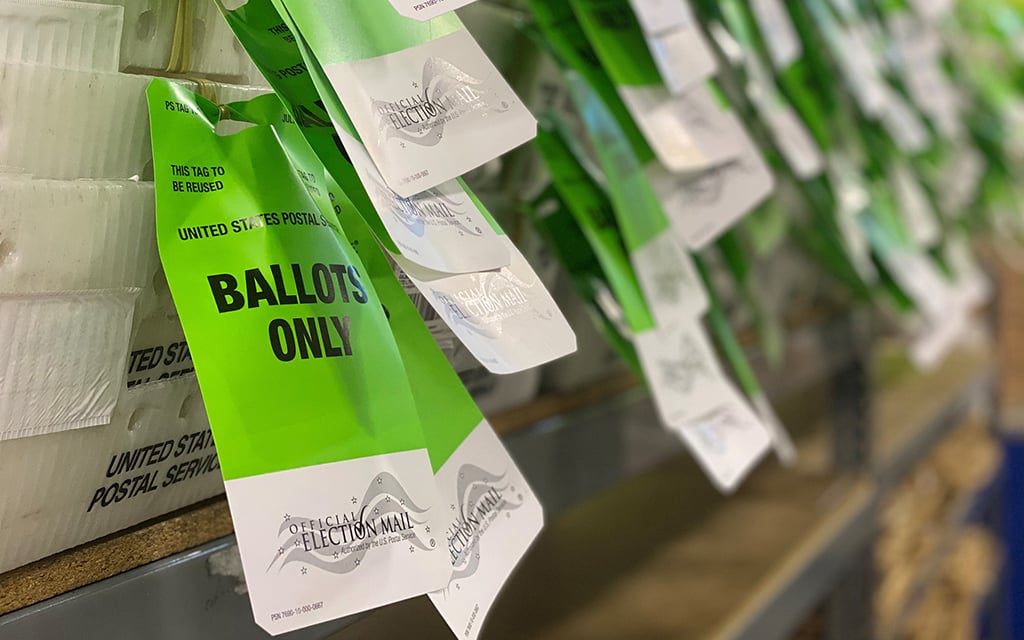
After losing party recognition in 2019, the Arizona Green Party is collecting signatures to register as a new party so it can have its state and local candidates appear on the ballot in 2024. by (File photo by Michael Gutnick/Cronkite News)
PHOENIX — The Arizona Green Party is collecting signatures to register as a new party after losing party recognition in the state in 2019. If the party is successful, it will be ballot eligible for the 2024 elections.
Parties looking to qualify for recognition must submit at least 34,127 valid signatures to the Secretary of State’s office by Nov. 30. In order to ensure enough signatures are valid, the Green Party is aiming to collect 70,000 signatures by that date and had collected 41,601 as of Sept. 30.
Amee Beck-Jones, the Maricopa County, central and northern Arizona ballot access coordinator for the Arizona Green Party, said the group is looking for volunteers to help distribute petitions and collect signatures as it mainly relies on grassroots organizing.
“It’s a very small organization,” Beck-Jones said. “Nothing close to what the Democrats and Republicans can run, obviously. So the main gist of this is still based on people, volunteers just getting out there.”
She said people who are interested in the Green New Deal, climate change, ending global conflict and standing up to large corporations should consider the Green Party.
However, the number of voters in Arizona registered as independent or “other” is on the rise. According to the Secretary of State’s office, 34.55% of voters are registered as “other,” slightly more than both registered Democrats and Republicans. Currently, voters can’t register with the Green Party but will be able to if ballot access is granted.
The number of independent voters is slightly higher in Maricopa County, with 35.5% of voters registered as independent or “other,” according to County Recorder Stephen Richer. According to data from Gallup, 46% of Americans identify as independent.
Jackie Salit, the president of Independent Voting, a political strategy organization, said independent voters often have an “affinity” for third parties, which could help smaller parties like the Greens pull voters.
“There is often an equation made between people deciding to identify themselves as independents and their inclination to vote for independent candidates or independent parties,” Salit said. “Independents really are independent, and they often say they want to vote for the person, not the party.”
If the Greens qualify for the 2024 ballot, voters will be able to choose from three smaller parties, including the Libertarian Party and the No Labels party, which was recognized earlier this year.
Even though these parties could benefit from the rise in independent voters, Salit said those voters might not be enticed by parties with deep ideological ties.
“If minor parties are presenting themselves to the public primarily as an ideological force, they’ll get support from people who are aligned with that ideology, but they won’t necessarily get support from the growing number of Americans who feel that we have to move beyond ideology,” Salit said.
Mike Cease, the Pima County, southern Arizona and statewide ballot access coordinator for the Arizona Green Party, said the goal after regaining ballot access will be registering more voters to the party, which will eventually help maintain party status.
If the Arizona Green Party succeeds in its petition this year, the party’s candidate for governor or president would need to receive at least 5% of votes cast in 2026 or have 0.67% of registered voters statewide on Oct. 1, 2025, for continued representation. New parties maintain new party status through two federal general elections following their recognition and would have to petition again unless they met the continuation criteria.
According to data from the 2018 election – the last time the party was on the ballot – the Green Party only had 0.17% of registered voters statewide in the general election. That same year, the party’s candidate for governor received about 2.1% of the votes cast.
Cease said petitioning can be difficult, as each election cycle brings its own challenges, and not having to worry about gaining ballot access would allow the party to focus on recruiting candidates and registering voters.
“We approach every cycle differently,” Cease said. “There’s issues with volunteer strength, donation strength and those sorts of things, and those conditions are different each election cycle. (2020) was challenged by the pandemic, so I would say every election cycle is different.”
Beck-Jones encouraged those who are curious about the Green Party to read about its platform and reach out to local members to get involved.
“I just want to encourage people to look that up and see we might be worth their time in helping us get on the ballot if they’re interested in those values,” she said.

